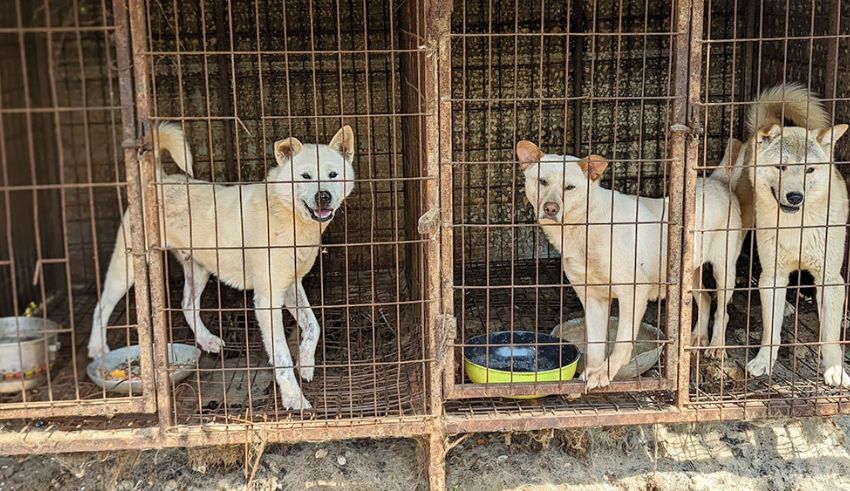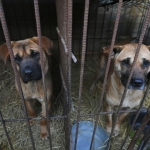
Eating dog meat has been a part of South Korea’s culinary culture for centuries, dating back to the Three Kingdoms period (57 BC – 668 AD).
The practice was influenced by the belief that dog meat has medicinal and nutritional benefits, especially during the hot summer months. Dog meat dishes, such as bosintang (dog meat soup) and suyuk (boiled dog meat slices), were enjoyed by people from all walks of life, regardless of class or region.
The Change
However, eating dog meat has become a controversial and divisive issue in South Korea, as the country has undergone rapid modernization and globalization.
The practice has faced increasing criticism and opposition from animal rights activists, who denounce it as cruel and inhumane, and from younger generations, who view it as outdated and unappealing. The practice has also attracted negative attention and stigma from the international community, especially during major events such as the 1988 Seoul Olympics and the 2018 Pyeongchang Winter Olympics.
As a result, the consumption and production of dog meat have declined significantly in recent years. According to a Gallup poll in 2020, only 8% of South Koreans had eaten dog meat in the past year, down from 27% in 2015. The number of dog farms and slaughterhouses has also decreased, from about 17,000 in 2018 to about 3,000 in 2020. The demand and supply of dog meat have also dropped, from about 2 million dogs per year in the 1990s to about 500,000 dogs per year in 2020.
The Challenge
Despite the declining trend, eating dog meat is still legal and prevalent in South Korea, as there is no specific law that bans or regulates the practice. The existing animal protection laws are vague and weak, and do not cover the breeding, slaughtering, and selling of dogs for meat. The enforcement and monitoring of the laws are also lax and inconsistent, and the penalties are low and rare.
Keep Reading
The main obstacle to ending the practice is the resistance and opposition from the dog meat industry, which consists of farmers, traders, and restaurant owners, who rely on the practice for their livelihood and income. The industry claims that eating dog meat is a personal choice and a cultural tradition, and that banning it would violate their rights and interests. The industry also argues that the practice is no different from eating other animals, such as cows and pigs, and that the dogs are raised and killed humanely.
The industry has been lobbying and protesting against any attempts to ban or restrict the practice, such as the proposed bills in the parliament, the petitions from the public, and the campaigns from the activists. The industry has also been seeking recognition and support from the government and the society, such as subsidies, compensation, and alternative livelihoods.
The Future
The future of eating dog meat in South Korea is uncertain and unpredictable, as the practice faces a complex and contentious situation. On one hand, the practice is likely to fade away gradually, as the younger and urbanized generations lose interest and appetite for it, and as the social and international pressure and awareness increase. On the other hand, the practice is likely to persist stubbornly, as the older and rural generations maintain their preference and habit for it, and as the industry fights to protect and preserve it .
The resolution of the issue will depend on the balance and compromise between the various stakeholders and factors involved, such as the law and the policy, the culture and the ethics, the economy and the welfare, and the public and the private.
The issue will also require the cooperation and dialogue among the different actors and perspectives, such as the government and the industry, the activists and the consumers, and the domestic and the foreign. The issue will also demand the respect and tolerance for the diversity and complexity of the society and the world.





























